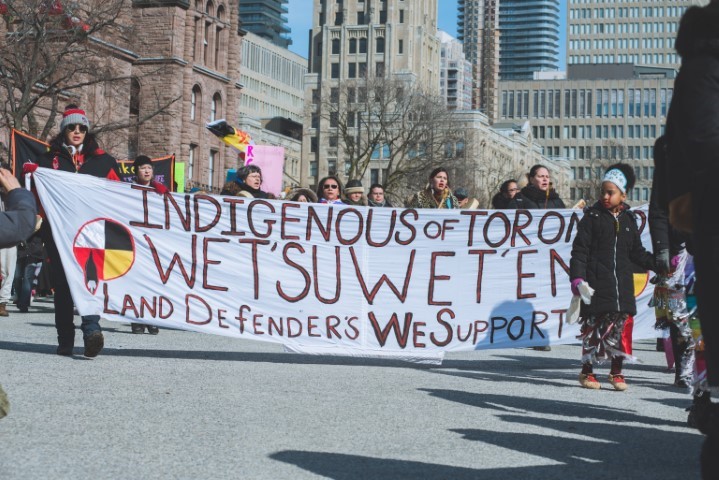
A ‘peaceful’ resolution can never happen with this kind of crisis
By EG Manilag, Staff Writer
Prime Minister Justin Trudeau said after a cabinet meeting that he will find a “quick” and “peaceful” resolution to the recent Wet’suwet’en crisis. However, there are many reasons why this crisis will never achieve a peaceful or quick resolution. But first, let’s start with a brief overview of what’s going on with the Wet’suwet’en crisis.
On December 31, 2019 the RCMP were called to enforce a BC Supreme Court injunction approved on behalf of Coastal GasLink; their intentions were to establish a natural-gas pipeline in the unceded Wet’suwet’en territory. Although the RCMP and the gas company were in the legal position to enter the territory, this sparked conflict due to the fact that First Nations have a separate legal system long forgotten and neglected by Canadian governance. Today, as protests and rail blockades continue, a call for reconciliation and resolution is still at bay.
Now, this situation leaves PM Trudeau with little room to maneuver; whatever his proposed solution might be, it is still going to cause some ugly repercussions. If he chooses to acquiesce to First Nation laws, he will have no choice but to deal with the legal pressures of the corporate giants. If he instead chooses to follow Crown law however, he will then be faced with enormous pressures from the First Nations people… which has already garnered historic levels of global outcry.
In a situation like this, I think the ultimate solution would be to make a binding law that would unify both the Crown and the First Nations’ law; in terms of laws and jurisdictions, two rules of law in a land simply won’t work.
The Wet’suwet’en conflict is more akin to a clash between countries of power than a disagreement between neighboring provinces. From a realist perspective, international relations, laws, and politics are all anarchic, as there is no single law that binds them all.
Also, countries of power clearly aren’t ready to give up their pride nor compromise. Although this political perspective is widely criticized as cynic and evil, it is important to note that international conflicts are prevalent because, again, there are no laws that completely unify the world.
First Nations protest groups are sick and tired of this kind of treatment. Surrendering this fight is simply not an option for them. Likewise, Coastal GasLink is ready to fight for their rights to continue their pipeline because they know they are legally backed by the Crown.
This all boils down to PM Trudeau and the federal governments impasse on whether to recognize Indigenous laws or follow the Crown’s law. But, regardless of what is chosen, they will not be free from consequences. Ultimately, a true and peaceful resolution can never be achieved with this kind of crisis.


